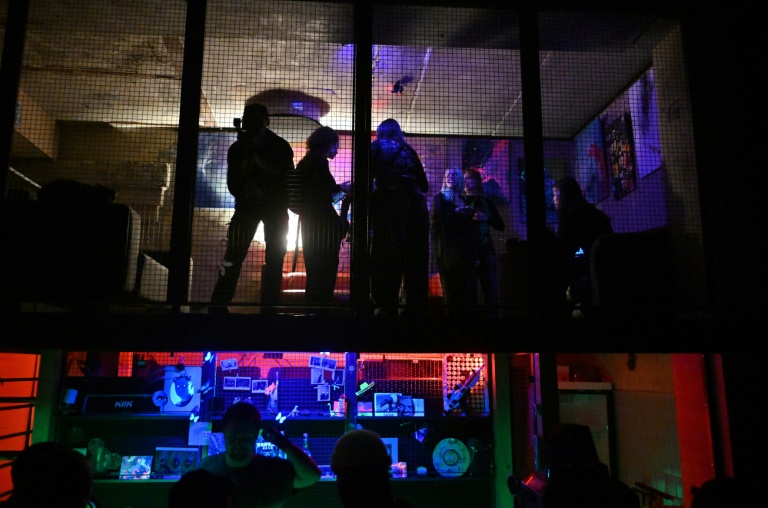Batavia Biosciences
In biotechnology, the journey from discovery to market can appear insurmountable unless you are a major pharmaceutical company. Increasingly, technology is allowing for the development of promising therapeutics in small labs, especially for rare and orphan diseases that are often overlooked by large drugmakers. Unfortunately, these small labs are usually without the means and resources to produce their potential cures at scale.
That’s where Contract Development and Manufacturing Organizations (CDMOs) such as Batavia Biosciences come in. By partnering with CDMOs, these small companies can gain expertise as well as infrastructure and regulatory compliance capabilities, thereby accelerating their journey toward clinical evaluation and eventual commercialization. The number of CDMOs greatly increased during the Covid-19 pandemic, but Batavia is no newcomer. It has helped clients in the arduous journey of bringing viral vaccines, viral vectors, proteins and antibodies to fruition for 14 years.
Batavia provides tailored experiences in process development, manufacturing, and support across various stages of drug development, focusing on cell and gene therapy and vaccines. This allows scientists to focus on finding cures instead of building production and commercialization capability. Batavia is headquartered in the Netherlands and has a sizable R&D facility in Woburn, Mass., just outside of Boston.
An example of Batavia’s impact can be seen in its collaboration with Phoenix Nest, a small biotech company focused on developing therapeutics for Sanfilippo syndrome, a rare, inherited and particularly cruel disorder with four subtypes (A-D) that makes a child’s body unable to break down some carbohydrates. Life expectancy of patients is only 10 to 20 years.
Dedicated to treating children like her son, the CEO of Phoenix Nest embarked on a mission to find a solution. Recognizing the need for refinement and scalability in manufacturing, Phoenix Nest turned to Batavia to help with a therapeutic for the rarest of all subtypes, Type D. Batavia takes the baton from Phoenix Nest and applies crucial process and analytical development expertise, enabling the future production of recombinant human N-acetylglucosamine-6-sulfatase (rhGNS) for treatment of Sanfilippo syndrome. This work on a therapeutic for a hyper-rare disease (10-50 patients total in the U.S.) magnifies the importance of maximizing the use of all enzymes produced, brings down the chemicals, manufacturing and controls costs; and assures affordability of treating this tiny patient population. This partnership between Phoenix Nest and Batavia bridges the gap between discovery and clinical studies.
The rationale behind such collaborations lies in the immense challenges faced by smaller companies in establishing their own manufacturing capabilities. From securing funding to navigating regulatory standards to building a team with extensive experience, the hurdles are manifold. By partnering with CDMOs such as Batavia, these companies can focus on their core mission of therapeutic development while leveraging the expertise and infrastructure provided by experienced professionals.
But what sets CDMOs apart from traditional manufacturing organizations? The answer lies in their ability to offer end-to-end solutions, from process development to commercial manufacturing. While some companies may specialize in large-scale production, CDMOs such as Batavia provide tailored solutions, adapting to the specific needs of each client.
The journey from pre-clinical to clinical trials is no easy feat, often taking more than a decade. However, recent advancements, coupled with increased funding, have expedited this process.
In 2021, Batavia underwent a transformative phase when it was acquired by South Korea’s CJ Group, a global lifestyle company with a wide-ranging bio portfolio. CJ’s acquisition expanded its presence into the global biotech and life sciences sector. For Batavia, the CJ acquisition meant substantial financial backing, allowing it to grow its R&D capabilities, venture into new markets and expand its offerings with the construction of a brand new state-of-the-art commercial manufacturing facility in Leiden, the Netherlands, due to be completed in Q1 2025. Late last year, Batavia leased a second Netherlands facility in nearby Bilthoven. This strategic partnership not only bolstered Batavia’s position in the market but also aligned with CJ’s vision of making a meaningful impact in biotechnology.
The synergy between Batavia and CJ extends beyond revenue; it embodies a shared mission of advancing science for the betterment of humanity. Batavia entertained dozens of potential suitors during its auction process and chose to partner with CJ because it allowed Batavia to retain its identity and continue its journey of innovation.
As Batavia expands its footprint, especially in the U.S., with its substantial market scale and favorable funding environment, it faces new challenges and opportunities. With an emphasized focus on cell and gene therapy, Batavia aims to become a one-stop solution for clients, offering services from process development to commercial manufacturing. To this end, Batavia and CJ are making significant investments in their cell and gene therapy capabilities to optimize manufacturing processes that have hampered access to these products.
However, as the field of cell and gene therapy continues to evolve, clarity in regulatory frameworks, coupled with proactive engagement between industry stakeholders and regulatory agencies, will be essential in fostering innovation while upholding rigorous safety standards.
In a world where the path to the discovery of new and life-saving therapeutics is fraught with challenges, CDMOs such as Batavia Biosciences can be the vital tool that turns a hope into a cure.
(Peter Abbink, PhD, is Managing Director at Batavia Biosciences, Inc.)







